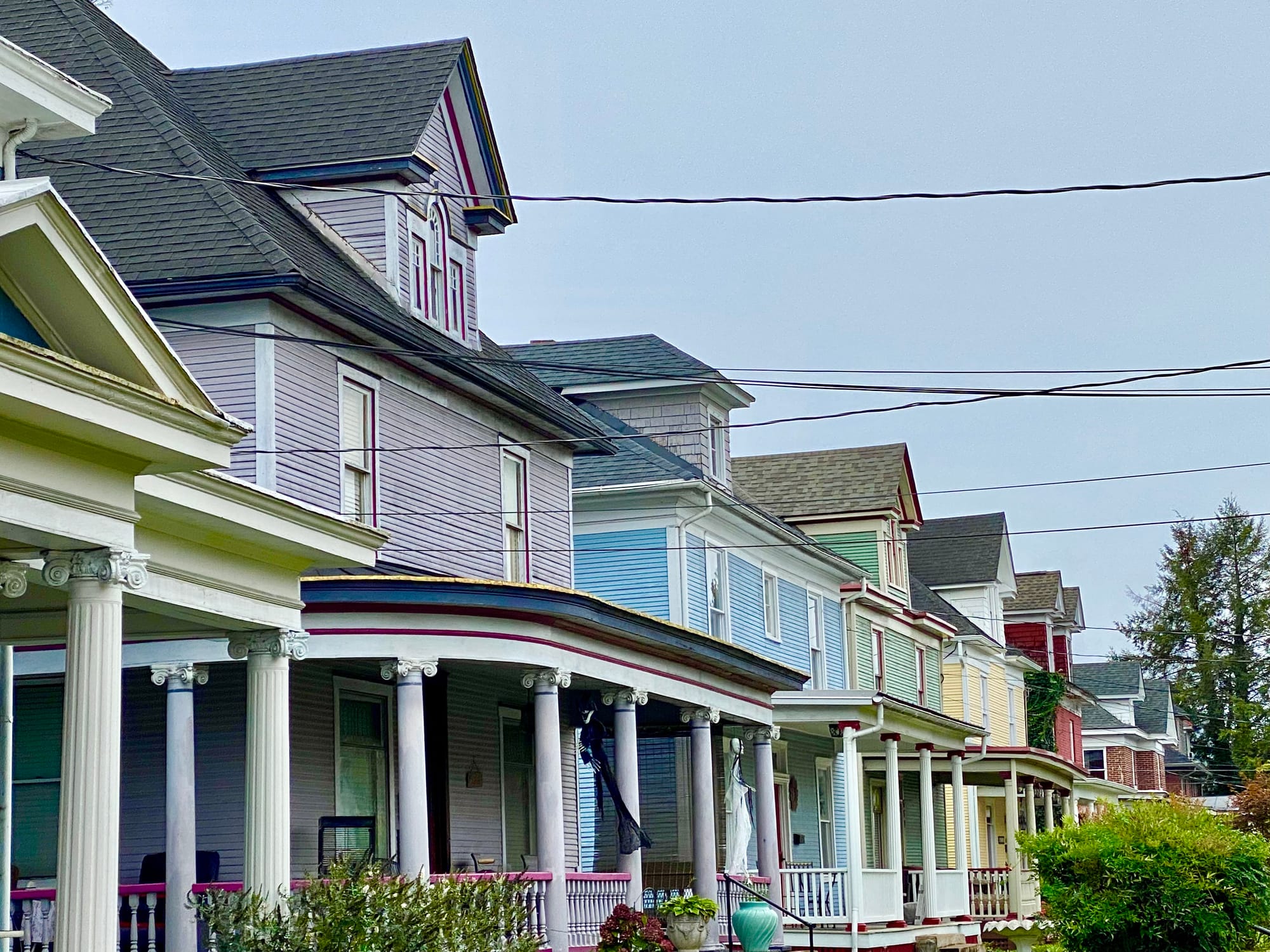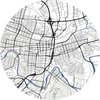Ramblings: City Eyes Tweaks to Historic Preservation Rules; Gun Violence Panel Changes Sought; Final Evans Spring Plan Adopted
What are Ramblings? Ramblings are a collection of short items that have caught our attention for one reason or another.
What are Ramblings? Ramblings are a collection of short items that have caught our attention for one reason or another. We’re on the lookout for tidbits related to money in politics, data, business, civic engagement or interesting events. Think you know of something that could be a Rambling? Drop us a line at editor@roanokerambler.com and we may well write about it. Happy reading!

City updating rules for historic districts
Roanoke is looking to make it slightly easier for residents to upgrade their homes in certain neighborhoods that come with strict rules around historic preservation.
Old Southwest, and parts of Gainsboro and Mountain View, lie within local historic districts that determine how windows, doors, roofs and other aspects of buildings must be repaired or replaced.
The city’s Architectural Review Board has proposed new guidelines that would ease the process to install certain solar panels, give more options for roof replacements and allow a homeowner to replace windows when they’re merely “deteriorated,” as opposed to “beyond repair.”
The city is holding a public meeting from 6 to 8 p.m. today (Wednesday, March 6) at the Fishburn Mansion (714 13th St. SW) to share more information about the proposal.
Two years in the making, the updates follow recent clashes in which City Council sided with residents who appealed decisions by the citizen-led ARB. The ARB was formed in 1979 after a decade in which numerous historic buildings in Old Southwest were torn down.
In 2022, an Old Southwest resident appealed an ARB decision denying his request for solar panels on the front of his roof; Council voted unanimously to reverse the ARB. Last November, a split Council overturned an ARB decision that a homeowner who improperly replaced historic windows with vinyl windows needed to remove them.
Members of Council and the ARB on Monday expressed hope that the proposed tweaks will reduce the likelihood that the two bodies will be at odds, which still happens only rarely.
“Most of the appeals we get deal with windows and roofs and those kinds of things,” Mayor Sherman Lea said at the joint meeting.
The discussion also highlighted how often residents don’t know — or claim they don’t know — the rules around maintaining the historic character of their homes.
“You'd be surprised at the homeowners that once they get here … and they’ve torn out the windows and thrown them away or whatever, say that they did not realize that they couldn’t do that,” said Councilwoman Trish White-Boyd, who pressed officials on how the city was educating residents.
“The short answer is we don’t do enough,” ARB chair Bill Mason said.
“There needs to be a better way to inform,” Husain Alam, the board’s vice chair, added. “Our board, we don’t have enough teeth or tools in our toolbox to make that happen. You all have much better tools.”
He recommended that Council send letters to a home builders network, contractors association and group of regional real estate agents, who are required to tell prospective homebuyers that they would be purchasing in a historic district.
Alam also urged Council to impose penalties on those who flout the rules — such as by tearing down a historic house — who currently face little accountability.
If the city cracks down on blatant violations, Alam said, “I think you will get a lot more people to follow the guidelines.”
Leaders eye gun violence panel changes
Roanoke leaders are considering adding members to its Gun Violence Prevention Commission and removing the voting power of any Council member who sits on the board.
Some Council members have scrutinized the volunteer advisory group, chaired by Vice Mayor Joe Cobb, over some of its decision-making around grant funding.
Mayor Sherman Lea has been vocal about seeing more law enforcement representation on the board and dampening Cobb’s power. That scrutiny led some members to resign from the commission in recent months.
The proposed change would allow up to two non-voting Council liaisons to the commission, make Police Chief Scott Booth a non-voting member and add two non-voting youth members.
“I think the two liaison positions will give Council the information they need to oversee things,” Lea said. “I’m glad to see the chief is there.”
City Manager Bob Cowell noted Booth has been attending meetings and is “very much looking forward to this elevated role.”
Council is expected to vote on the change at its March 18 meeting.
Lea praised the work that the commission has been doing, noting that some state leaders steered violence-reduction funding to the city because “Roanoke has the best infrastructure to deal with issues, and especially with the gun violence commission that started.”
Council finalizes Evans Spring plan approval
Roanoke City Council on Monday finalized a plan for Evans Spring meant to guide large-scale development after the narrowness of a decision last month prompted a second vote.
The decision remained an unchanged 4-3 vote, with Vice Mayor Joe Cobb and Council members Stephanie Moon Reynolds and Luke Priddy in the minority,
The master plan for the 151 acres of privately owned woodlands across Interstate 581 from Valley View Mall says Evans Spring should become a mix of big box stores, smaller shops, and hundreds of houses and apartments.
Before the vote, nine residents reiterated their opposition to the plan — which encompassed concerns around environmental degradation, climate change and racism. Evans Spring borders three predominantly Black neighborhoods, and some see the city’s push for development as a modern-day version of urban renewal.
Stephen Niamke, a founding member of the Friends of Evans Spring advocacy group, also gave a formal presentation to Council sponsored by Cobb and Moon Reynolds.
“Today's decision will be the most important decision the city will make this century,” Niamke said. “A vote of ‘yes’ will extend the city’s legacy of racism, violence and disrespect into the unforeseeable future.”
Moon Reynolds said she believes the city did not adequately engage the community in the master plan process and that some residents’ concerns remain unaddressed.
“It could come back and haunt us as a city,” she said.
Councilman Peter Volosin said a change he proposed for the plan to incorporate more green space means 71 acres will be conserved across the 151-acre properties.
“This plan provides a good roadmap for how to use sustainable development practices to maximize the use of the limited amount of developable space we have in the city,” Volosin said.
Volosin said the plan outlines a community village in Northwest Roanoke that could host a grocery store and neighborhood businesses. Major development could create 1,700 jobs, provide affordable housing and improve stormwater management, Volosin said.
He encouraged citizens opposed to development at Evans Spring to remain engaged.
“My request is that you continue to work with the city in the next steps of this process, namely any future rezoning,” Volosin said.
He also asked that city staff work with any conservation group looking to buy some of the land.
Mayor Sherman Lea said Volosin’s research and compromise made it easier for him to support the final draft of the concept plan.
“We’re challenged to move Roanoke forward,” Lea said. “This is not urban renewal. This is something to help keep Roanoke moving forward.”

